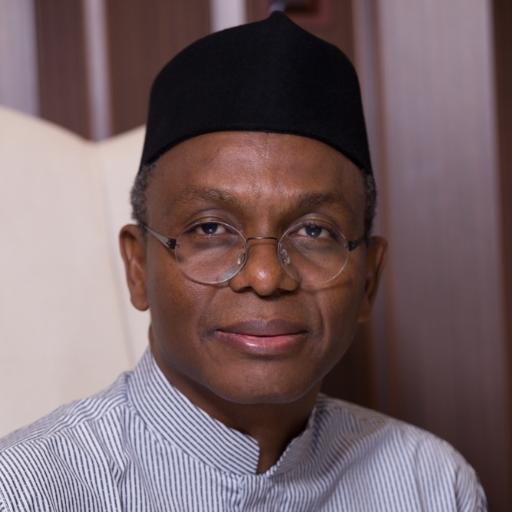Health
Menstrual Hygiene Solutions: Kaduna Girls Take Action
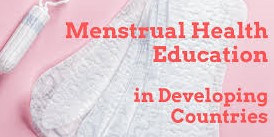
Menstrual hygiene solutions: Kaduna girls take action
Adolescent girls in Kaduna State, North-West Nigeria are currently behind the sale of over 15,000 packs of reusable menstrual hygiene products worth N3.5 million, in a scheme that has become not only a means of livelihood for communities, but has also improved quality of life for the users.
The difficulties girls go through to get sanitary pads can only be imagined, especially so in rural communities or slums.
One of such areas where this challenge manifests is Rigasa; is a densely populated urban slum in the south west of Igabi Local Government Area in Kaduna State.Mr Yusha’u Abubakar, Founder and Executive Director, Enhancing Communities Action for Peace and Better Health Initiative (E-CAPH), said the issue of sanitary pads was a challenge in the community because of poverty and lack of economic empowerment.
“When the United Nations Population Fund (UNFPA) called for an application for a project to support adolescent girls and boys, we decided to apply with focus on this area because it is a challenge.
“We sent our proposal and UNFPA found it worthy and supported us to train young girls in our community.”
He said 200 girls were trained on making reusable sanitary pads, adding that the initiative has improved school attendance of girls in the community as well as taken care of their menstruation hygiene challenges.
Impact of the training on the girls
Fatima Abdullahi, 18, is one those trained by E- CAPH and described the experience as overwhelming because she now produces it for her personal use and for trade.
“I was used to begging for money to buy pads or forced to use other materials in spite of its discomfort for my period. Now I help myself and others with my trade,” she said.
Similarly, Asma’u Mohammed, 18, said she was happy for the acquired skill that has made her self-reliant.
“With this, I don’t have to ask my parents for everything I need, because I can now earn little money by making sanitary pads for my peers.”
Sanitary pad boosting economic empowerment of the community
Albabatu Musa, Manager and Coordinator, E-CAPH Skills Acquisition Centre, said the accessibility of the reusable pad has made it a preferred choice for most girls in the Rigasa community.
“The reusable pad is made up of cotton-based materials because of its absorbable nature and easy access in the market.
“So far, 15,000 packs of three pieces each, have been produced at the centre and sold for N3.5 million to a client in Borno State.
“At the open market, a pack is sold for N500 and for every pack, there is a gain (profit) of N150. The product is in high demand,” she said.
Musa said the pad was highly profitable and cost effective because it can be used for a minimum of 3 months and a maximum of 6 months.
“A pack of three go for N500 with a profit margin of N150. The trained adolescents were currently making the reusable pad for their personal use and sales.”
Support by the UNFPA in the Rigasa pad project
Ms Mariana Darboe, the Programme Coordinator and Head of Office, UNFPA Decentralised Office for Northern Nigeria, said the reusable sanitary pad project was part of the livelihood support training as a COVID-19 response to alleviate poverty in communities.
She said the project was supported by the funds Risk Communication and Community Engagement (RCCE) project under the UN Basket Fund support for COVID-19 response in Nigeria.
Darboe added that the RCCE initiative was to curb the risk and impact of gender-based violence and interconnecting sexual and reproductive health consequences.
A mother’s burden lifted
A mother of four, Sadiya Ibrahim, said the reusable sanitary pad had reduced her stress “because most times during their menstrual period I am helpless to help my four girls with the needed money to buy sanitary pads.
“Sometimes they feel uncomfortable saying that they are on their period, so they just use available pieces of clothes to help themselves.
“Whenever they use clothes, they spend most of their time in the room because it makes them uncomfortable.”
How we got the buy-in of the communities considering the religious and cultural challenges
In most communities in northern Nigeria, talking about reproductive health issues among women and young girls is considered a no-go area. E-CAPH executive director Abubakar said the initiative surmounted this major limitation and got the buy-in of the community through advocacy.
“We were able to make people understand what sexual and reproductive health issues are all about and the need for parents to talk to their children about sexual reproductive health issues.
“The religious and community leaders provided the platform for us to talk to young girls in Islamiyah schools, women groups gathered their children and invited us to talk to them.
“This strategy helped in increasing the acceptance of talking about the issues in communities where it is hitherto difficult to do so.”
How the girls monthly dilemma turns to joy
Some users of the sanitary pads narrated their experiences on how it changed their monthly dilemma to joy.
Kadijah Salis, 17: “I use pieces of clothes due to lack of money to buy a pad. Sometimes I am forced to stay at home to avoid embarrassment in school because most times the clothes leak and stain our uniforms.
“The reusable pad is the best thing that has happened to some of us from poor households.
Sadiya Aliyu, 18, said she only got to hear of the reusable pad recently, adding that it is “better because I can use it for six months and it is very comfortable. I only need two for a whole year”.
The way forward for menstruation hygiene in Rigasa
The Founder and Executive Director of E-CAPH said that the initiative was able to overcome the challenges of non-acceptance by the community that was religiously inclined not to discuss matter relating to women and especially women monthly menstrual cycle.
This, he said, was due to the various trainings personnel of his organisation went through.
From these training “we were able to understand the role of religious leaders, community leaders, women and youth groups in advocating for reproductive health and family planning.
“There was equally a book produced by NUHRI on religious (Islamic and Christian) perspectives to family planning.
“We used the book in partnership with religious leaders and women groups to advocate for the acceptance of the family planning and reproductive health issues in communities.
“We were able to help them understand more about sexual and reproductive health issues. This led to the acceptance by parents to talk to their children and wards about sexual reproductive health issues.
Abubakar said that with the achievement so far recorded in helping the girls to better manage their menstrual hygiene, development partners, state government and local government areas should support the initiative to increase access by the poor and vulnerable adolescent girls in urban and rural areas.(NAN)
Health
No pending Lassa Fever Cases in kaduna—–Official
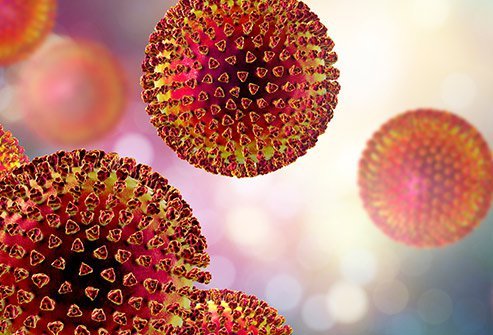
Kaduna State Primary Health Development Agency, (KPHDA) says there is no pending cases of Lassa fever in the state.
Director of public health, Ibrahim Hamza-Ikara, told the News Agency of Nigeria on Wednesday in Kaduna, that the state has not recorded any Lassa fever cases for the past few weeks.
He added that all suspected cases have been discharged from the hospitals.
“We have not recorded any Lassa fever cases for the past few weeks and all the remaining eight patients have been discharged.
He said the state would continue it’s sensitisation programme on how best to improve hygiene practices to residents.
The News Agency of Nigeria recalls that on February 23, the state recorded four deaths of Lassa fever and three on admission from the 44 Nigerian Army Reference hospital in the state.
Others infected were identified and being closely monitored.
He urged residents to maintain proper food and environmental hygiene and immediately report any suspected cases of Lassa fever to the nearest health facility for prompt attention. (NAN)
Health
BNSG Signs MoU With Shanghai Haitian hospital, Sinoki System for Training Activities
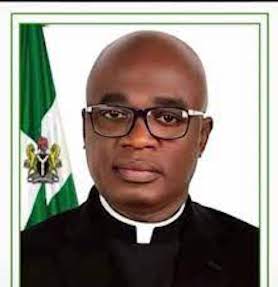
From Attah Ede Makurdi
The Benue State Government, on Monday , singed Memorandums of understandings (MOUs) with the Shanghai Haitian Hospital, to facilitate academic and clinical interchange between Benue State University Teaching Hospital, Makurdi.
The partnership according to the MoU, is in the areas of joint studies, training activities, and other educational exchanges of mutual interest.
The government has also entered into partnership with Sinoki System Limited, for the establishment of a Hybrid Solar Panel Factory in Benue State.
Signing the two Memorandums of understandings (MOUs) at the Old Banquet Hall of the Benue State Government House, Makurdi on Monday, Governor Hyacinth Alia said he was excited and optimistic that the partnerships would open many more doors of investments in the State, adding that his administration is willing to welcome more investors into the state.
He described the partnership with the Shanghai Haitian Hospital as an exciting one, saying his administration is determined to improve the overall health sector in the state, thereby discouraging the trend of health tourism to other countries.
“I am quite excited because our administration’s focus is to improve the health sector in the state that will be capable of increasing the lifespan of our people. The Benue State University Teaching Hospital as a partner in this is going to benefit from this collaboration, and it is our hope to discourage our people going overseas on medical tourism. There is nothing wrong in translating the finances spent elsewhere into our system.
“The partnership with the Shanghai Haitian Hospital will open more doors, especially as we also have Tertiary healthcare systems here in the state. Where we inherited total collapse of the healthcare system, we need to put all machinery in place to ensure that beginning from the primary to our tertiary health institutions, there are improvements.”
On the partnership with Sinoki System Company for the establishment of a Hybrid Solar Panel Factory in Benue State, the governor described it as a quick fix to the epileptic power challenge faced in the state, explaining that for every business to thrive, there must be some stability in electricity and he is excited about the partnership.
“The partnership is going to be a plus to the State. The business partnership will bring about the establishment of Hybrid Solar Panel Company in Benue State, through a Private Partnership agreement between the Benue State Government and Sinoki System Limited. We are excited about this because it will open more investment doors in the state.
“As I have mentioned at some other forums, we are a state that is open for business, and we are welcoming investors into our state to come and do business.
“The establishment of the Hybrid solar panel company in the state has come at a time when the electricity situation has been epileptic. But for business to thrive, we definitely need some stability of electricity. This is one quick fix to the anxiety and I am very excited about it,” the governor explained.
He called for more investors to take advantage of the many untapped investment opportunities in the state, promising that government on its part will continue to create the enabling environment for businesses to thrive in the state.
Earlier in his address, the Special Adviser to the Governor on International Investment, Hon. Alex Adingi, while introducing the investors, said the investors have expressed their desire to partner with the state government in the two areas of health and energy for the overall good of the state, been the reason they have come to sign the partnership agreement.
A statement by chief press secretary to Governor Alia, sir Tersoo Kula said William Wang, a Director with the Shanghai Haitian Hospital, represented the Hospital while Liu Hai Ding, represented Sinoki System Limited.
Health
Lassa Fever: NCDC Registers 1 Death, 15 New Cases in 1 Week
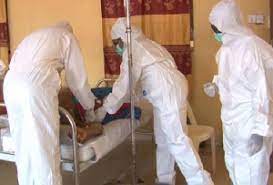
The Nigeria Centre for Disease Control and Prevention (NCDC) has reported one death and confirmed 15 new cases of lassa fever within one week across the country.
The NCDC said this in a situation report for week 13 published on its website on Friday.
Reports says that lassa fever is an acute viral hemorrhagic illness transmitted to humans through contact with food or household items contaminated by infected rodents or contaminated persons.
Its symptoms include fever, headache, sore throat, general body weakness, cough, nausea, vomiting, diarrhoea, muscle pains, chest pain, and, in severe cases, unexplainable bleeding from ears, eyes, nose, mouth and other body openings.
The NCDC noted a decrease in the number of confirmed cases from 25 cases in week 12 to 15 cases in the reporting week, although the number of suspected cases increased compared to the same period in 2023.
Cumulatively, from week one to 13, the country recorded 806 confirmed cases and 150 deaths, with a case fatality rate (CFR) of 18.6 per cent, higher than the CFR for the same period in 2023 (17.5 per cent).
“Twenty-five states have recorded at least one confirmed case across 125 local government areas in 2024.
“Sixty-two per cent of all confirmed cases were recorded from Ondo, Edo, and Bauchi, with Ondo State accounting for 24 per cent, Edo 22 per cent, and Bauchi 16 per cent,” it said.
According to the report, no health worker was infected in the reporting week, and individuals between the ages of 31 and 40 were predominantly affected by the infection.
The NCDC said the National Lassa Fever Multi-partner, Multi-sectoral Incident Management System had been activated to coordinate response at all levels at the Emergency Operations Centre (EOC).
The NCDC highlighted some challenges in the fight against lassa fever, including the late presentation of cases leading to increased CFR and poor health-seeking behaviour.
It attributed the latter to the high cost of treatment and clinical management of lassa fever, as well as poor environmental sanitation and awareness in high-burden communities. (NAN)




